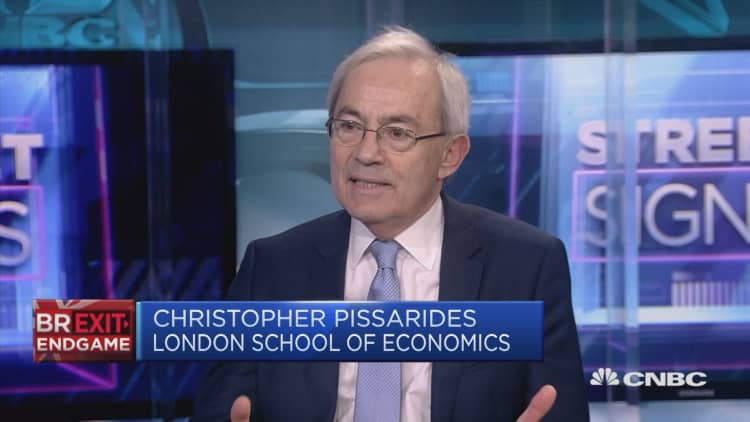Italy and the European Commission, the EU's executive arm, have announced a new budget deal after weeks of wrangling over the country's 2019 spending plans.
Italy's government said last week that it would lower its deficit target for next year to 2.04 percent, down from an original target of 2.4 percent. The target was confirmed by the Commision on Wednesday.
"The Italian government has come a long way, only a few weeks ago there was confrontational rhetoric," the European Commission's Vice President Valdis Dombrovskis said Wednesday, meaning that the Commission can avoid launching disciplinary measures against Italy, he told reporters.
"The solution is not ideal but it allows us to avoid an 'Excessive Deficit Procedure' at this stage … One important positive element is that the new budget is based on a plausible economic scenario," he said.
"Credible and sustainable budgetary policies cannot be planned on over-optimistic forecasts," he added, alluding to Italy's original draft budget.
Although Italy has made revisions to its spending plans, Dombrovskis stressed that the composition of the spending still raised concerns, particularly the main expansionary measures — the citizens' income and rollback of pensions reforms (including lowering the retirement age).
"When these measures will fully come into force they will result in higher costs for the years to come. In 2020 and 2021, Italy intends to compensate the costs by … raising value-added tax (VAT). However, we know that in the past Italy has not activated this kind of safeguard. If this happens again large resources will need to be found elsewhere."
The new measures also contain higher taxes on companies and cuts in planned investments, Dombrovskis added, which he said "are not growth-friendly steps, however these could be offset by better use of available EU structural funds."
Italian markets rise
Reports that a deal with the Commission could be imminent gave Italian financial markets a boost Wednesday morning and that rally continued after it was confirmed. Italy's FTSE MIB was trading 1.9 percent higher Wednesday late morning with its bank stocks up 3.6 percent. Meanwhile, the yields on all its short-term (two, five and 10-year) bonds fell with the yield on Italy's benchmark 10-year government bond at 2.8 percent Wednesday.
The deal comes after an impasse between Italy's coalition government, made up of the right-wing Lega party and anti-establishment Five Star Movement (M5S), and the European Commission over the country's controversial 2019 spending plans.
Italy got into trouble with the Commission because its budget had envisaged increased spending and lower taxation in order to fulfill key election promises, including the introduction of a basic income (called a "citizen's income") for the poor, a lower retirement age and a proposed flat tax rate.

These plans would have meant that Italy's budget deficit (the amount by which its spending exceeds its revenues) would have hit 2.4 percent in 2019.
While this is within the official EU limit of 3 percent, Brussels rejected the budget because it goes against EU rules which say that states should work towards lowering their budget deficits (Italy's previous government had already agreed to a lower budget deficit of 0.8 percent) and debt piles (Italy has the second highest debt pile in the euro zone of 133 percent of GDP).
Italy's deputy prime ministers, the leaders of Lega and M5S, had appeared unrepentant about the budget while Economy Minister Giovanni Tria and Prime Minister Giuseppe Conte were more malleable to changes.


